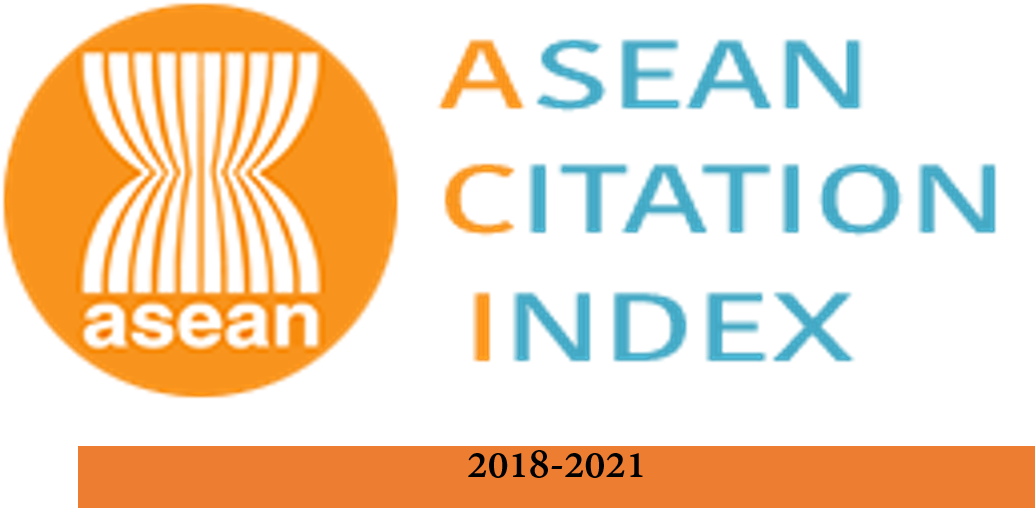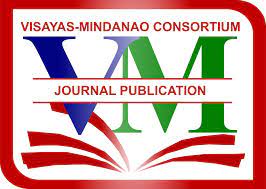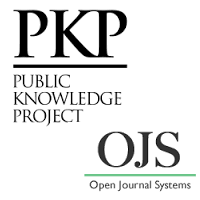Perceived Factors on the Performance of Graduates in the Licensure Examination
Abstract
Passing the licensure examination indicates the quality of education offered by an institution. A country requires this to its graduates to ascertain the effectiveness of jobs and employment that are vital to a countrys development. This study investigated factors affecting students performance in the licensure examination at one university in Mindanao, Philippines. The study employed a descriptive-survey research design utilizing Perceived Causes of Academic Failure Inventory (PCAFI) to help pinpoint factors and causes that contributed to the performance of graduates during the board examination. Results of the study showed that problems withthe learning environment, specifically on “Many things to memorize,†and problems with the content examination, specifically on “Examination was very stressful,†were identified as the key factors of their performance in the licensure examination. The study recommended intervention programs and mechanisms in improving the conduct of board examination review programs in the university, which primarily address reducing test anxiety while improving test-taking skills and study strategies. It further recommended conducting studies using other designs and variables to ensure a more comprehensive understanding of results relative to students performance in the licensure examination.
Keywords:
Perceived factors, licensure examination, performance, learning environment, content examination
References
Aaronson, D., Barrow, L. & Sander, W. (2007). Teachers and Student Achievement in the Chicago Public High
Schools. Journal of Labor Economics. https://doi.org/10.1086/508733.
Adunola, O. (2011), The Impact of Teachers Teaching Methods on the Academic Performance of Primary
School Pupils in Ijebu-Ode Local cut Area of Ogun State, Ego Booster Books, Ogun State, Nigeria.
APA Task Force on Psychology in Education. (1993,1997). Learner-centered psychological principles:
Guidelines for school redesign and reform. Washington, DC: American Psychological Association,
Mid-Continent Regional Education Laboratory. Retrieved from https://www.scirp.org/reference/
referencespapers?referenceid=757360
Aquino, A.B., & Balilla, L.A. (2015). Preservice teacherslicensure examination plans and content knowledge,
Asia Pacific J. Educ. Arts Sci., 2(2), 110-116
Astin, A. W. (1993). Assessment for excellence: the philosophy and practice of assessment and evaluation in
higher education. New York, NY: American Council on Education.
Ataunal, A. (2003). Nicin ve nasil bir ogretmen? (Why and what kind of a teacher?). Ankara: Milli Egitim Vakfi
Yayinlari No. 4
Atkinson, R. C., & Geiser, S. (2009). Reflections on a century of college admissions tests. Educational
Researcher, 38, 665-676.
Aysan, F. (1996). Perceived Causes of Academic Failure among the Students at the Faculty of Education at
Buca. Retrieved from https://files.eric.ed.gov/fulltext/ED406326.pdf
Bautista, A. and Dicang, M. (2007). Course preparation and review programs of the College of Education,
University of Baguio. UB Research Journal 2007. UB Baguio City.
Beck, H. P., & Davidson, W. B. (2001). Establishing an early warning system: Predicting low grades in college
students from Survey of Academic Orientation scores. Research in Higher Education, 42(6), 709-723.
https://doi.org/10.1023/A:1011040026243
Bharadwaj, ‬B.K. ‬& ‬Pal, ‬S. (2011). ‬Mining Educational Data ‬to Analyse ‬Students
‬Performance, International ‬ Journal of Advanced Computer Science and Applications, 2(6):63-69.
‬‬‬‬‬‬‬‬‬‬‬‬‬‬‬‬‬‬‬‬‬‬‬‬‬‬‬‬‬‬‬
Bonis, S., Taft, L., & Wendler, C. (2007). An evidenced-based approach using: The ace star model of knowledge
transformation. Nursing Education Perspectives, 28 (2), 82-87.
Cortez, M., Alipante, A., & Lajato, D. (2017). Binary logistic model on factors affecting the result of licensure
examination for teachers (LET). International Journal of Education and Research, 5(5), 279- 288
DeBerard, M. S., Speilmans, G. I., & Julka, D. L. (2004). Predictors of academic achievement and retention
among college freshman: A longitudinal study. College Student Journal. 38(1), 66-77.
Duckworth, A. L., Peterson, C., Matthews, M. D., & Kelly, D. R. (2007). Grit: Perseverance and passion for
long-term goals. Journal of Personality and Social Psychology, 92(6), 1087-1101
Figuerres, O. B. (2013). An Analysis of the Performance of the University of Northern Philippines in the
Licensure Examination for Teachers. IAMURE International Journal of Education, 6(1).
Geiser, S., & Santelices, M. V. (2007). Validity of high schools grades in predicting student success beyond
the freshman year: high school record vs. standardized 120 tests as indicators for four-year college
outcomes. Berkley, CA: Center for Studies in Higher Education, Research and Occasional Papers
Series. Retrieved from http://files.eric.ed.gov/fulltext/ED502858.pdf
Geiser, S., & Studley, R. (2004). UC and the SAT: Predictive validity and differential impact of the SAT I
and SAT II at the University of California. In R. Zwick (Ed.), Rethinking the SAT: The Future of
Standardized Testing in University Admissions (pp. 125-153). New York: Routledge Falmer.
Hall C. W., Smith, K., & Chia, R. (2008). Cognitive factors and personality factors in relation to timely
completion of a college degree. College Student Journal, 42(4), 1087-1098.
Hall, C. W. (2001). A measure of executive processing skills in college students. College Student Journal, 35,
442-449.
Kearns, H., & Gardiner, M. (2007). Is It Time Well Spent? The Relationship between Time Management
Behaviours, Perceived Effectiveness and Work-Related Morale and Distress in a University Context.
High Education Research & Development, 26, 235- 247.
Koedel, C., & Betts, J. R. (2007). Re-Examining the Role of Teacher Quality in the Educational Production
Function. Vanderbilt: National Center on Performance Incentives. Retrieved from https://www.scirp.
org/reference/referencespapers?referenceid=2871566.
Kosoko-Oyedeko, G. A. (2008). Correlates of teacher profiles and pupils academic achievement. The Social
Sciences, 3(1), 6-11.
Krause, K.L. and Coates, H. (2008) Students Engagement in First-Year University. Assessment & Evaluation
in Higher Education, 33, 493-505.
Lee, M., & Larson, R. (2000). The Korean “examination hellâ€: Long hours of studying, distress, and depression.
Journal of Youth and Adolescence, 29, 249-272.
Li, L.KY. (2012). A Study of the Attitude, Selfefficacy, Effort and Academic Achievement of City U Students
towards Research Methods and Statistics. Discovery - SS Student E-Journal, 1, 154183.
Lotkowski, V.A., Robbins, S.B., & Noeth, R.J. (2004). The Role of Academic and Non-Academic Factors
in Improving College Retention. ACT Policy Report. Retrieved from https://www.scirp.org/reference/
referencespapers?referenceid=2095313.
Masgoret, A.-. and Gardner, R.C. (2003), Attitudes, Motivation, and Second Language Learning: A Meta-
Analysis of Studies Conducted by Gardner and Associates. Language Learning, 53, 123-163. https://
doi.org/10.1111/1467-9922.00212
Parker, J. D., & Duffy, J. M. (2005). Making a successful transition during the first year of college: Does
emotional intelligence matter? Retrieved from http://www.sc.edu/fye/resources/assessment/essays/
Parker & Duffy1.12.05.html
Parker, J. D., Duffy, J. M., Wood, L. M., Bond, B. J., & Hogan, M. J. (2005). Academic achievement and
emotional intelligence: Predicting the successful transition from high school to university. Journal of
the First-Year Experience & Students in Transition, 17(1), 67-78. Publications, 6(1), 455-461.
Schmitt, N., Keeney,J., Oswald, F. L., Pleskac, T.J., Billington,A. Q., Sinha, R., & Zorzie, M. (2009). Prediction
of 4-year college student performance using cognitive and non-cognitive predictors and the impact on
demographic status of admitted students. Journal of Applied Psychology, 94(6), 1479-1497.
Sparkman, L. A., Maulding, W. S., & Roberts, J. G. (2012). Non-cognitive variables of student success in
college. College Student Journal, 46(3), 642-652.
Sternberg, R. J. (2010). College admissions for the 21st century. Cambridge, MA: Harvard University Press.
Stewart CM, Bates RE, Smith GE (2004). Does performance on school-administered mock boards predict
performance on a dental licensure exam?. Journal of dental education, 68(4), 426-432.
Stupinsky, R. H., Renaud, R. D., Daniels, L. M., Haynes, T. L., & Perry, R. P. (2008). The interrelation of
first year college students critical thinking disposition, perceived academic control and academic
achievement. Research in Higher Education, 49, 513-530.
Stupinsky, R. H., Renaud, R. D., Perry, R. P., Ruthig, J. C., Haynes, T. L., & Clifton, R. A. (2007). Comparing
self-esteem and perceived control as predictors of first-year college students academic achievement.
Social Psychology of Education 10, 303-330. https://doi: 10.1007/s11218-007-9020-4.
Verma, S. & Gupta, J. (1990). Some aspects of high academic stress and symptoms. Journal of Personality and
Clinical Studies, 6, 7-12.
Yarcia , R.J. 2001. Professional Teacher: Their Role in the New Millennium, The Philippine Journal of
Education. Retrieved from https://www.iosrjournals.org/iosr-jrme/papers/Vol-6%20Issue-4/Version-2/
A0604020110.pdf
Yusuff, K. (2018), Does personalized goal setting and study planning improve academic performanceand
perception of learning experience in a developing setting?. Journal of Taibah University Medical
Sciences, 13 (3), 232-237. https://doi.org/10.1016/j.jtumed.2018.02.001.
Zins, J. E., Weissberg, R. P, Wang, M. C., & Walberg, H. J. (2004). Building Academic Success on Social and
Emotional Learning: What Does the Research Say? New York, NY: Teachers College Press. Retrieved
from https://psycnet.apa.org/record/2004-21939-000
Schools. Journal of Labor Economics. https://doi.org/10.1086/508733.
Adunola, O. (2011), The Impact of Teachers Teaching Methods on the Academic Performance of Primary
School Pupils in Ijebu-Ode Local cut Area of Ogun State, Ego Booster Books, Ogun State, Nigeria.
APA Task Force on Psychology in Education. (1993,1997). Learner-centered psychological principles:
Guidelines for school redesign and reform. Washington, DC: American Psychological Association,
Mid-Continent Regional Education Laboratory. Retrieved from https://www.scirp.org/reference/
referencespapers?referenceid=757360
Aquino, A.B., & Balilla, L.A. (2015). Preservice teacherslicensure examination plans and content knowledge,
Asia Pacific J. Educ. Arts Sci., 2(2), 110-116
Astin, A. W. (1993). Assessment for excellence: the philosophy and practice of assessment and evaluation in
higher education. New York, NY: American Council on Education.
Ataunal, A. (2003). Nicin ve nasil bir ogretmen? (Why and what kind of a teacher?). Ankara: Milli Egitim Vakfi
Yayinlari No. 4
Atkinson, R. C., & Geiser, S. (2009). Reflections on a century of college admissions tests. Educational
Researcher, 38, 665-676.
Aysan, F. (1996). Perceived Causes of Academic Failure among the Students at the Faculty of Education at
Buca. Retrieved from https://files.eric.ed.gov/fulltext/ED406326.pdf
Bautista, A. and Dicang, M. (2007). Course preparation and review programs of the College of Education,
University of Baguio. UB Research Journal 2007. UB Baguio City.
Beck, H. P., & Davidson, W. B. (2001). Establishing an early warning system: Predicting low grades in college
students from Survey of Academic Orientation scores. Research in Higher Education, 42(6), 709-723.
https://doi.org/10.1023/A:1011040026243
Bharadwaj, ‬B.K. ‬& ‬Pal, ‬S. (2011). ‬Mining Educational Data ‬to Analyse ‬Students
‬Performance, International ‬ Journal of Advanced Computer Science and Applications, 2(6):63-69.
‬‬‬‬‬‬‬‬‬‬‬‬‬‬‬‬‬‬‬‬‬‬‬‬‬‬‬‬‬‬‬
Bonis, S., Taft, L., & Wendler, C. (2007). An evidenced-based approach using: The ace star model of knowledge
transformation. Nursing Education Perspectives, 28 (2), 82-87.
Cortez, M., Alipante, A., & Lajato, D. (2017). Binary logistic model on factors affecting the result of licensure
examination for teachers (LET). International Journal of Education and Research, 5(5), 279- 288
DeBerard, M. S., Speilmans, G. I., & Julka, D. L. (2004). Predictors of academic achievement and retention
among college freshman: A longitudinal study. College Student Journal. 38(1), 66-77.
Duckworth, A. L., Peterson, C., Matthews, M. D., & Kelly, D. R. (2007). Grit: Perseverance and passion for
long-term goals. Journal of Personality and Social Psychology, 92(6), 1087-1101
Figuerres, O. B. (2013). An Analysis of the Performance of the University of Northern Philippines in the
Licensure Examination for Teachers. IAMURE International Journal of Education, 6(1).
Geiser, S., & Santelices, M. V. (2007). Validity of high schools grades in predicting student success beyond
the freshman year: high school record vs. standardized 120 tests as indicators for four-year college
outcomes. Berkley, CA: Center for Studies in Higher Education, Research and Occasional Papers
Series. Retrieved from http://files.eric.ed.gov/fulltext/ED502858.pdf
Geiser, S., & Studley, R. (2004). UC and the SAT: Predictive validity and differential impact of the SAT I
and SAT II at the University of California. In R. Zwick (Ed.), Rethinking the SAT: The Future of
Standardized Testing in University Admissions (pp. 125-153). New York: Routledge Falmer.
Hall C. W., Smith, K., & Chia, R. (2008). Cognitive factors and personality factors in relation to timely
completion of a college degree. College Student Journal, 42(4), 1087-1098.
Hall, C. W. (2001). A measure of executive processing skills in college students. College Student Journal, 35,
442-449.
Kearns, H., & Gardiner, M. (2007). Is It Time Well Spent? The Relationship between Time Management
Behaviours, Perceived Effectiveness and Work-Related Morale and Distress in a University Context.
High Education Research & Development, 26, 235- 247.
Koedel, C., & Betts, J. R. (2007). Re-Examining the Role of Teacher Quality in the Educational Production
Function. Vanderbilt: National Center on Performance Incentives. Retrieved from https://www.scirp.
org/reference/referencespapers?referenceid=2871566.
Kosoko-Oyedeko, G. A. (2008). Correlates of teacher profiles and pupils academic achievement. The Social
Sciences, 3(1), 6-11.
Krause, K.L. and Coates, H. (2008) Students Engagement in First-Year University. Assessment & Evaluation
in Higher Education, 33, 493-505.
Lee, M., & Larson, R. (2000). The Korean “examination hellâ€: Long hours of studying, distress, and depression.
Journal of Youth and Adolescence, 29, 249-272.
Li, L.KY. (2012). A Study of the Attitude, Selfefficacy, Effort and Academic Achievement of City U Students
towards Research Methods and Statistics. Discovery - SS Student E-Journal, 1, 154183.
Lotkowski, V.A., Robbins, S.B., & Noeth, R.J. (2004). The Role of Academic and Non-Academic Factors
in Improving College Retention. ACT Policy Report. Retrieved from https://www.scirp.org/reference/
referencespapers?referenceid=2095313.
Masgoret, A.-. and Gardner, R.C. (2003), Attitudes, Motivation, and Second Language Learning: A Meta-
Analysis of Studies Conducted by Gardner and Associates. Language Learning, 53, 123-163. https://
doi.org/10.1111/1467-9922.00212
Parker, J. D., & Duffy, J. M. (2005). Making a successful transition during the first year of college: Does
emotional intelligence matter? Retrieved from http://www.sc.edu/fye/resources/assessment/essays/
Parker & Duffy1.12.05.html
Parker, J. D., Duffy, J. M., Wood, L. M., Bond, B. J., & Hogan, M. J. (2005). Academic achievement and
emotional intelligence: Predicting the successful transition from high school to university. Journal of
the First-Year Experience & Students in Transition, 17(1), 67-78. Publications, 6(1), 455-461.
Schmitt, N., Keeney,J., Oswald, F. L., Pleskac, T.J., Billington,A. Q., Sinha, R., & Zorzie, M. (2009). Prediction
of 4-year college student performance using cognitive and non-cognitive predictors and the impact on
demographic status of admitted students. Journal of Applied Psychology, 94(6), 1479-1497.
Sparkman, L. A., Maulding, W. S., & Roberts, J. G. (2012). Non-cognitive variables of student success in
college. College Student Journal, 46(3), 642-652.
Sternberg, R. J. (2010). College admissions for the 21st century. Cambridge, MA: Harvard University Press.
Stewart CM, Bates RE, Smith GE (2004). Does performance on school-administered mock boards predict
performance on a dental licensure exam?. Journal of dental education, 68(4), 426-432.
Stupinsky, R. H., Renaud, R. D., Daniels, L. M., Haynes, T. L., & Perry, R. P. (2008). The interrelation of
first year college students critical thinking disposition, perceived academic control and academic
achievement. Research in Higher Education, 49, 513-530.
Stupinsky, R. H., Renaud, R. D., Perry, R. P., Ruthig, J. C., Haynes, T. L., & Clifton, R. A. (2007). Comparing
self-esteem and perceived control as predictors of first-year college students academic achievement.
Social Psychology of Education 10, 303-330. https://doi: 10.1007/s11218-007-9020-4.
Verma, S. & Gupta, J. (1990). Some aspects of high academic stress and symptoms. Journal of Personality and
Clinical Studies, 6, 7-12.
Yarcia , R.J. 2001. Professional Teacher: Their Role in the New Millennium, The Philippine Journal of
Education. Retrieved from https://www.iosrjournals.org/iosr-jrme/papers/Vol-6%20Issue-4/Version-2/
A0604020110.pdf
Yusuff, K. (2018), Does personalized goal setting and study planning improve academic performanceand
perception of learning experience in a developing setting?. Journal of Taibah University Medical
Sciences, 13 (3), 232-237. https://doi.org/10.1016/j.jtumed.2018.02.001.
Zins, J. E., Weissberg, R. P, Wang, M. C., & Walberg, H. J. (2004). Building Academic Success on Social and
Emotional Learning: What Does the Research Say? New York, NY: Teachers College Press. Retrieved
from https://psycnet.apa.org/record/2004-21939-000
Published
2023-12-29
Section
Articles
Copyright (c) 2023 Asia Pacific Journal of Social and Behavioral Sciences
Copyright holder is the Bukidnon State University.
How to Cite
Tulud, Donnie M., Mirasol O. Verona, and Ronel A. Naringahon. "Perceived Factors on the Performance of Graduates in the Licensure Examination." Asia Pacific Journal of Social and Behavioral Sciences 21 (2023): 15-28.
Tulud, D. M., Verona, M. O., & Naringahon, R. A. (2023). Perceived Factors on the Performance of Graduates in the Licensure Examination. Asia Pacific Journal of Social and Behavioral Sciences, 21.
Most read articles by the same author(s)
- DONNIE MARASIGAN TULUD, Computer Assisted Language Learning and Speaking Proficiency of Second Language Learners , Asia Pacific Journal of Social and Behavioral Sciences: Vol 19 (2021): Asia Pacific Journal of Social and Behavioral Sciences










